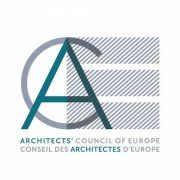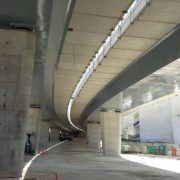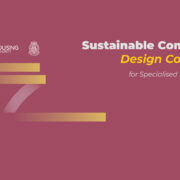ACE welcomes Public Procurement Package; reiterates need for quality-based public procurement
While the European Parliament is currently preparing an own-initiative report on the Public Procurement Strategy package that the Commission adopted in October 2017, the Architects’ Council of Europe (ACE) reiterates its recommendations for quality-based public procurement.
The ACE underlines the lack of quality-based decisions in the planning sector. Decisions concerning the procurement of architectural services have far reaching consequences in success of the project e.g. concerning buildability, equivalence for users’ needs and economic result of the project. A successful procurement phase forms basis for good design, creating value for all of the stakeholders throughout the whole life cycle of building.
The planning process has a minor financial impact on the total costs of a building: 6 to 12 % of the costs, and even less if considering the whole life cycle of a building. It is not a good strategy to save on design costs, as any investment at this stage improves the overall quality of the project, and reduces both execution and life cycle costs. Having this in mind, it is obvious that the procurement of architectural services should be based on quality only. A further step towards quality-based selection is represented by the architectural design contest (ADC), as the awarding criteria is not based on past works (references), but on the concrete project, i.e. looking to the future. In this sense, the ACE advocates strongly for using the design contest as the primary method of achieving quality-based and project-orientated selection for architectural services.
As showed by the ACE Sector Study, the architectural market is highly fragmented. More than 90% of offices are small or, in economical terms, even micro enterprises. Yet, they are still able and competent to execute large-scale works and create jobs. Fragmentation is a healthy factor, as it includes regionalism, ability to move cross border, to adapt structures on growing demands and needs, and to be innovative. The actual habit of requiring onerous eligibility criteria is mostly hindering this 90% share of offices from entering the market. A clear regulation to reduce inadequate eligibility criteria, going much beyond the existing rule, is urgently needed.
As recalled by the recent Davos Declaration endorsed by Ministers of Culture, Baukultur is of growing importance. The building sector is not a business like others, it has a huge impact on our built environment, our cities, public spaces, and the spaces in which we work and live. It is not only a question of culture, but also a question of the quality of life of the European citizens and an immense social question, including the collateral costs of all wrong decisions. Baukultur is a driving force of European identity, as the model of the European city represents a unique quality. It is a best practice example, but can only keep this role if the quality of its development is commensurate with the quality of the existing urbanities. High-quality Baukultur needs quality-based decisions.
The ACE shares the view of the Commission that there is a lack of professionalism in the field of public procurement. We want to draw the attention to the fact, that many of the ACE Member Organisations have a significant expertise in organising architectural design contests, as this procedure has a long tradition, constantly adapted and updated by the profession. Regional competition committees and professionally experts are constantly working on this field and we would appreciate a reference to this work in future recommendations concerning quality-based selection procedures.
For more information on the ACE position on Public Procurement, read the ACE Manifesto on Quality-based Public Procurement
The Kamra tal-Periti is an affiliate member of the Architects’ Council of Europe





